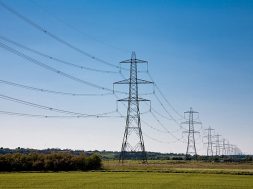
In Short : The International Energy Agency (IEA) is actively working to reduce renewable energy costs in the developing world. This effort underscores a commitment to making sustainable energy more accessible and affordable, aiming to accelerate the global transition towards renewable sources and mitigate climate change impacts.
In Detail : The International Energy Agency (IEA) is working to reduce the costs of renewable energy in developing countries, according to Fatih Birol, the agency’s executive director.
He stated that the agency will ensure that the World Bank, regional development banks, and other institutions prioritize the cost of investing in clean energy in developing countries after the latest United Nations Climate Change Conference (COP28).
During COP28 in Dubai, global governments agreed to triple renewable energy generation capacity by 2030 and shift away from fossil fuel use. However, no mechanism was agreed upon for financing the transition to clean energy in developing countries.
Speaking on the sidelines of an energy conference in Istanbul on Friday, Birol mentioned that investments in clean energy in emerging and developing countries have remained stagnant since 2015 while increasing almost globally. Most of the growth has come from China and advanced economies.
He told Reuters, “For the International Energy Agency, the main story from now until Baku will be finding mechanisms to mitigate risks to ensure a flow of funds to developing and emerging countries.” COP29 is scheduled to take place in Baku next year.
Birol added that risks mean that the cost of capital for investing in solar power plants in the developing world could be up to four times higher than those in advanced economies, hindering the flow of capital.
“Our task will be to ensure that the World Bank, regional development banks, and the finance sector prioritize clean energy financing, reduce risks for those investments, and provide easy financing,” he said.
He further stated, “The world now has more capital than it needs. If the World Bank, regional development banks, and financial institutions provide some guarantees and mechanisms to reduce risks, the money will flow quickly because the potential is enormous.”












